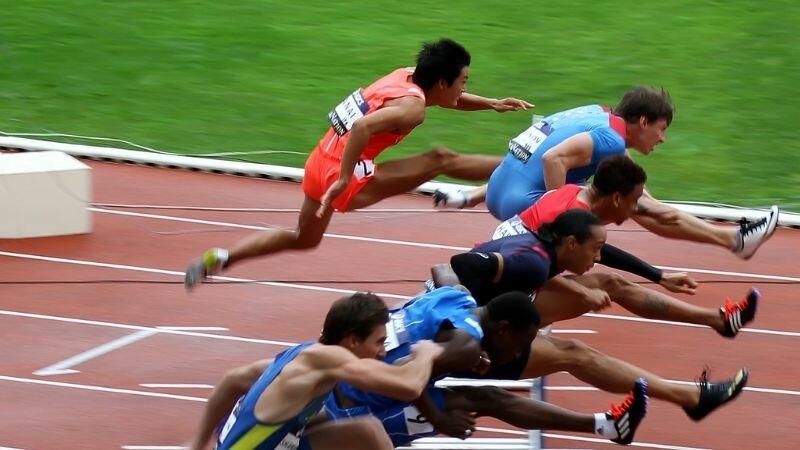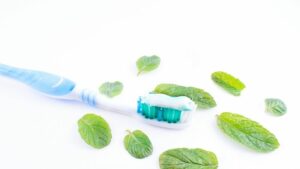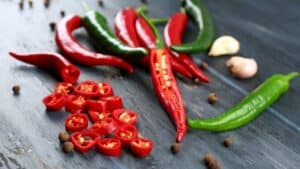Spicy food is a pre-workout staple for many athletes. Chili peppers can get your heart pumping and metabolism revving – but is that actually beneficial or could it hinder your performance?
The answer isn’t so black and white.
Spicy foods like chili peppers contain capsaicin, which triggers the release of adrenaline, endorphins, and other hormones that stress your body similar to exercise.
This can enhance certain aspects of your workout like metabolism, fat burning, and blood flow. But going overboard on
So whether spicy food is good or bad pre-workout really depends on your personal tolerance and how well you handle capsaicin’s effects.
This article will break down:
- The potential benefits of spicy pre-workout
- Risks and drawbacks to be aware of
- Tips for timing and food choices to optimize performance
- Who may want to avoid spicy food before exercise
- And finally, give a verdict on if spicy food is ultimately good or bad for your workout
By the end you’ll understand how to take advantage of spicy food’s assets without allowing its liabilities to jeopardize your training. Time to turn up the heat on your nutrition game!
How Does Spicy Food Impact Your Body?
Spicy foods contain capsaicin, the active component that creates that fiery feeling in your mouth. Capsaicin binds to pain receptors, triggering the release of hormones like adrenaline and endorphins. This gives you:
- Increased heart rate and metabolism
- Sweating and vasodilation (widened blood vessels)
- Endorphins act as natural pain relievers
So in essence, spicy food stresses your body in much the same way as exercise does!
Potential Benefits of Eating Spicy Pre-Workout
Here are some of the touted benefits of spicy food for athletes and gym-goers:
✅ Increases Metabolism
The capsaicin-induced spike in heart rate and temperature mimics the effects of cardiovascular exercise. Research shows that regularly eating spicy food can boost your resting metabolic rate by up to 8%!
✅ May Enhance Fat Burning
The increase in body temperature and metabolism from spicy food could promote greater fat oxidation during your workout. However, more research is still needed to confirm this effect.
✅ Acts as a Vasodilator
Opening up your blood vessels allows for greater blood flow and oxygen delivery to your working muscles. This vascular effect could enhance muscular endurance and performance.
✅ Provides an Energy Boost
For some people, the excitement of spicy food can be energizing before a tough workout. The mood lift may increase motivation and mental readiness.
✅ Curbs Appetite
The appetite suppressing qualities of chili peppers can help you avoid overeating before your workout. This may fuel performance and reduce chances of GI distress.
So in moderation, spicy food can offer legitimate performance benefits for your workout through increased metabolism, fat burning, and blood flow.
Potential Drawbacks of Spicy Pre-Workout
However, there are also some possible downsides of spicing up your pre-workout fuel:
❌ Digestive Discomfort
Eating on the higher end of your personal
❌ Dehydration
Spicy food causes flushing and sweating, which can dehydrate your body. Make sure to adequately hydrate if you eat spicy food pre-workout.
❌ Burnout
Some people experience extreme thirst, weakness, and fatigue after eating very spicy food. This can deplete your energy for working out.
❌ Masks Fullness
The appetite suppressing effects could prevent you from consuming enough carbs, protein, and calories that your body needs to fuel your workout.
❌ Increased Bowel Motility
Spicy foods speed up digestion and could cause bathroom emergencies mid-workout!
The takeaway is moderation and knowing your personal tolerance. Avoid going overboard on
Tips for Eating Spicy Food Around Your Workout
Here are some tips on how to consume spicy food to optimize (or avoid hindering) your performance and recovery:
- Stick to your normal tolerance – don’t suddenly eat nuclear-hot wings before leg day if you’re not used to them.
- Have spicy food at least 2-3 hours pre-workout to allow for digestion.
- Balance
spice with complex carbs, protein, and healthy fats for sustained energy. - Hydrate, hydrate, hydrate to counteract dehydration.
- Opt for raw peppers or chili flakes instead of greasy, heavy hot sauces.
- Limit spicy food if you already deal with acid reflux or GI problems.
- Avoid spicy food immediately post-workout when hunger hormones are high.
- Consider supplementing with antacids if you experience heartburn.
With proper timing and moderation, you can likely enjoy spicy food without detriment to your performance.
Best Spicy Food Options Pre-Workout
Here are some athlete-approved spicy pre-workout meals and snacks:
🌶 Breakfast Burrito
Scrambled eggs, black beans, salsa, and avocado wrapped in a whole grain tortilla packs protein, carb, and healthy fats.
🥑 Spicy Guacamole
Mix hot sauce or chili flakes into fresh guacamole – the healthy fats and potassium provide fuel.
🍜 Thai Coconut Curry
Vegetable curry with brown rice gives a kick of capsaicin plus complex carbs.
🥗 Spicy Salsa and Chips
Salsa gives tomatoes, chilies, and hydration from the veggies. Pair with whole grain chips or crackers.
🥥 Thai Chicken Skewers
Grilled chicken skewers marinated in a spicy Thai peanut sauce over brown rice.
These meals provide
Foods to Avoid Eating Pre-Workout
Steer clear of these potentially gut-bombing spicy options before hitting the gym:
❌ Flaming Hot Cheetos or chili cheese fries
❌ Heavy hot wing drizzled in hot sauce or buffalo chicken pizza
❌ Extra-spicy Thai or Indian curry
❌ Hot chili with high-fat meats like bacon or sausage
❌ Ghost pepper challenges or extreme heat contests
Greasy, fatty, or extra-spicy versions are more likely to cause indigestion and discomfort that may ruin your workout.
Post-Workout Spicy Food Recommendations
After your workout, limit spicy food to avoid aggravating hunger and dehydration. Prioritize rehydrating and consuming protein and carbs for recovery.
If you do indulge in
🌶 Spicy tomato juice or gazpacho
🌶 Lightly spiced vegetarian chili
🌶 Low-fat chicken fajitas with mango salsa
🌶 Spicy Thai noodle soup with tofu
Wait at least 2 hours after your workout to let your body partially recover before eating spicy foods.
Who Should Avoid Spicy Pre-Workout?
These groups are better off avoiding spicy pre-workout fuel:
- Those with GI conditions like IBS, Crohn’s disease, or ulcers
- People sensitive to heartburn, acid reflux, and indigestion
- Anyone new to spicy food or with low tolerance
- Athletes doing endurance or ultra-distance events
- Individuals who already deal with nausea when working out
- People prone to dehydration or muscle cramps
Play it safe and stick to milder or familiar foods if spicy food gives you issues.
The Verdict: Is Spicy Food Good For Workouts?
The bottom line is spicy food can be good pre-workout nutrition if you handle it well and in moderation. The performance benefits like boosted metabolism, blood flow, and appetite control can aid your training.
However, be cautious with timing and quantity to avoid possible digestive and hydration issues. Knowing your personal tolerance is key – not everyone reacts well to spicy food before exercise.
Post-workout, allow your body time to rehydrate and recover before potentially irritating your system with spiciness. Focus on replenishing carbs, protein, and electrolytes at this time.
While spicy food likely won’t make or break your workout, paying attention to your own response will ensure you maximize any benefits while avoiding unwanted side effects.
Sources
- Concordia St. Paul: 8 Dos and Don’ts of Post-Workout Nutrition
- Healthline: Carbohydrates: Whole vs. Refined — Here’s the Difference
- Legion Athletics: Why Spicy Food is So Good for You.
- Health Digest: Why You Should Never Eat Spicy Foods Before Exercising
- Cosmopolitan: 8 Foods You Should Never Eat Before a Workout
- Jump Start by WebMD: Good Protein Sources
- Harvard T.H. Chan School of Public Health: The Nutrition Source: Types of Fat
- Eat Right: Timing Your Pre- and Post-Workout Nutrition
- NHS UK: How to eat Less saturated fat
- Mayo Clinic: Trans Fat is Double Trouble Heart Health
- MedLine Plus: Facts About Polyunsaturated Fats
- Men’s Journal: Nutrition for Athletes: Best Foods to Eat and When to Eat Them
- National Library of Medicine: Effects of curcumin supplementation on sport and physical exercise: a systematic review
- Runner’s World: 4 Reasons Why Chilies are Great for Runners
- National Library of Medicine: Foods Inducing Typical Gastroesophageal Reflux Disease Symptoms in Korea





